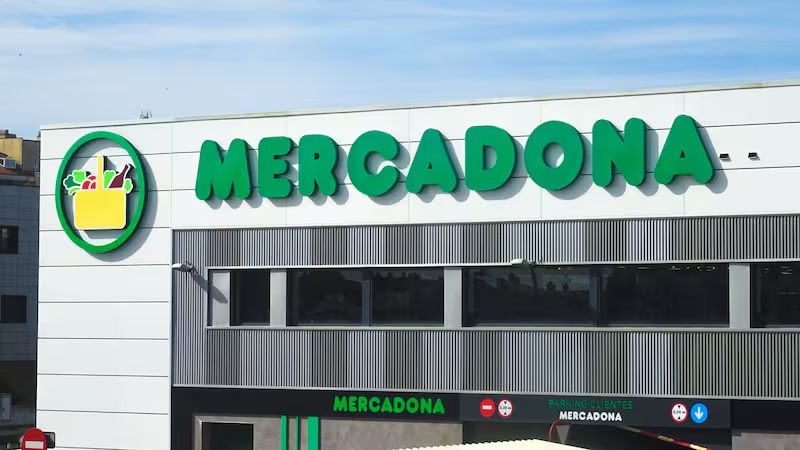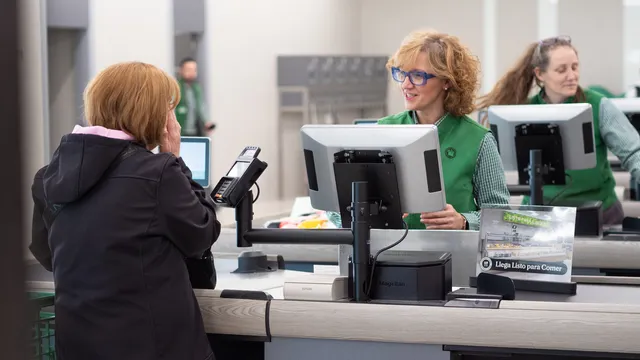Mercadona has launched this month the national orange campaign 2025/2026 with a clear forecast: to market 131,000 tons of oranges of Spanish origin in its more than 1,600 physical supermarkets in Spain and through its online channel.
The season, which has just started and will last until approximately August, will be entirely based on the production of different strategic citrus growing areas of the country. The company will work with oranges from fields in the Valencian Community, Andalusia, the Region of Murcia and Catalonia, reinforcing its image as an ally of the Spanish countryside and the consumption of local produce.
Suppliers, farmers and origin of the oranges that arrive at Mercadona
The magnitude of the campaign is explained by the collaboration structure that Mercadona maintains with the primary sector. For this season, the chain presided by Juan Roig will rely on thirteen Spanish suppliers, among them:
-
Martinavarro
-
Bollo
-
Fontestad
-
Tono Fruits
-
Frutinter
-
Anecoop
-
Agronostrum
-
Among other operators specialized in citrus
These suppliers, in turn, work with more than 2,000 growers throughout the country, which makes it possible to articulate a broad and stable supply chain, key to ensuring that oranges reach the shelves continuously throughout the campaign.
The company stresses that these alliances not only ensure volume and continuity, but also quality and homogeneity in the product offered to the end customer.
Three formats to reach all households
Oranges of national origin will be available in the chain’s three usual formats:
-
In bulk, for those who prefer to choose piece by piece.
-
3 kg nets, designed for more regular consumption.
-
5 kg nets, oriented to families and those who drink juice or fresh fruit on a daily basis.
With this, Mercadona continues the citrus campaign of national origin that began last October with tangerines and lemons, reinforcing its commitment to seasonal products and local supply.
Commitment to the national product and the primary sector
The company itself frames this move as part of a broader strategy: “This commitment is part of Mercadona’s quality and origin strategy, which promotes the consumption of products of national origin as long as they meet the required quality standards and there is sufficient availability to supply the stores”.
According to company data, 85% of the total assortment currently comes from domestic suppliers, a percentage that places Mercadona as one of the main drivers of Spanish agri-food production.
The joint work with its suppliers also makes it possible to extend the availability of domestic oranges until the end of the summer, something that was not always possible in previous campaigns. In this way, the chain emphasizes that the consumption of seasonal and proximity fruit is favored, in line with the demands of a consumer who is increasingly sensitive to the origin of what he/she buys.
Freshly squeezed juices: another boost to citrus consumption
Beyond the sale of oranges in traditional format, Mercadona maintains its commitment to the freshly squeezed orange juice service, present in all its stores since 2016. This format was born, they recall, from an innovation project together with the specialist supplier Zumex and with the direct participation of their own customers, who demanded convenient solutions for consuming fruit in the form of natural juice.
This service has several effects:
-
Increases the use of fresh oranges within the store itself.
-
Facilitates citrus consumption for those who prefer ready-to-go juice.
-
Reinforces the perception of freshness in the fruit and vegetable section.
In practice, it becomes a complement to the sale of fruit in traditional format, expanding the options for all types of consumers.
Relationship with institutional campaigns and good business practices
The Valencian chain also highlights that it supports the initiatives of the Ministry of Agriculture, Fisheries and Food within the #alimentosdespaña strategy and the campaign “The richest country in the world”, focused on highlighting the diversity and richness of Spanish agri-food production.
At the same time, Mercadona emphasizes its adherence to the Code of Good Commercial Practices in Food Procurement, a voluntary agreement that:
-
Seeks to improve relations within the agrifood chain.
-
It is part of the Law on Measures to Improve the Functioning of the Food Chain.
-
It aims to promote more balanced relations between producers, industry and distribution.
With this combination of institutional commitments and sectoral agreements, the company seeks to reinforce its image as a responsible player in the agri-food ecosystem.










